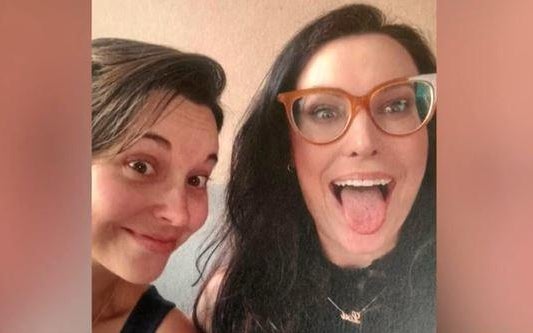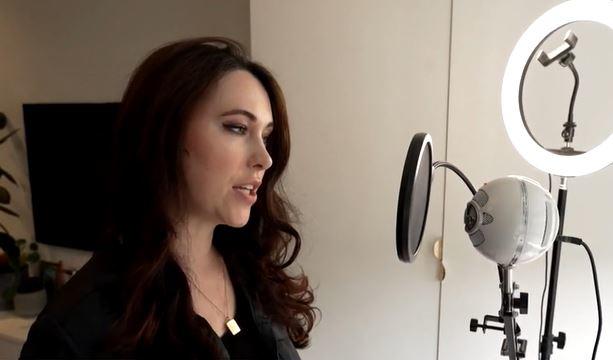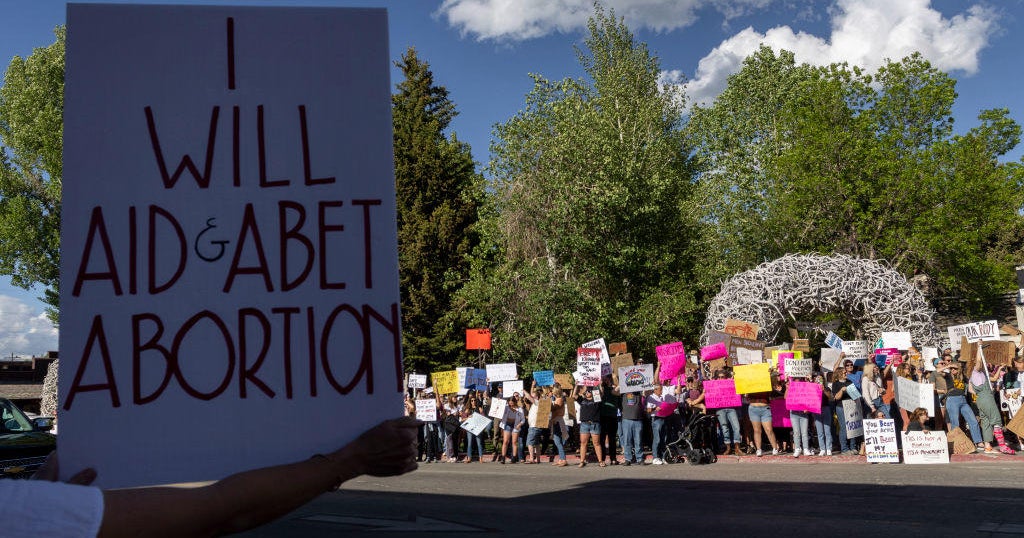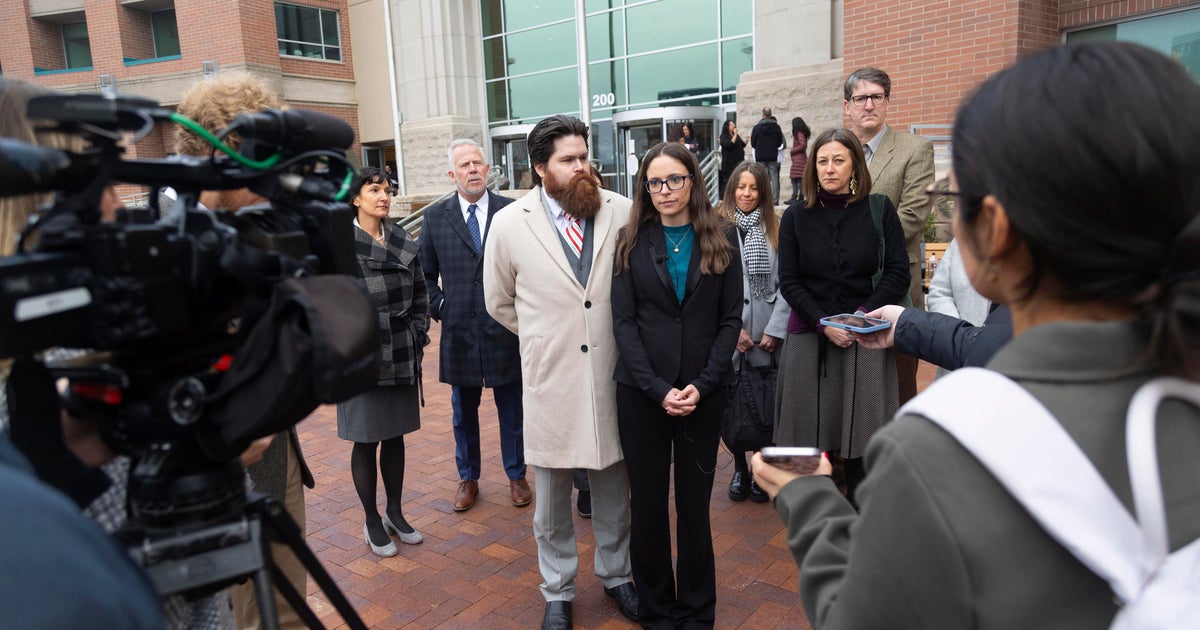CBS News
Serial sperm donors and lack of regulation create risks and leave children seeking answers
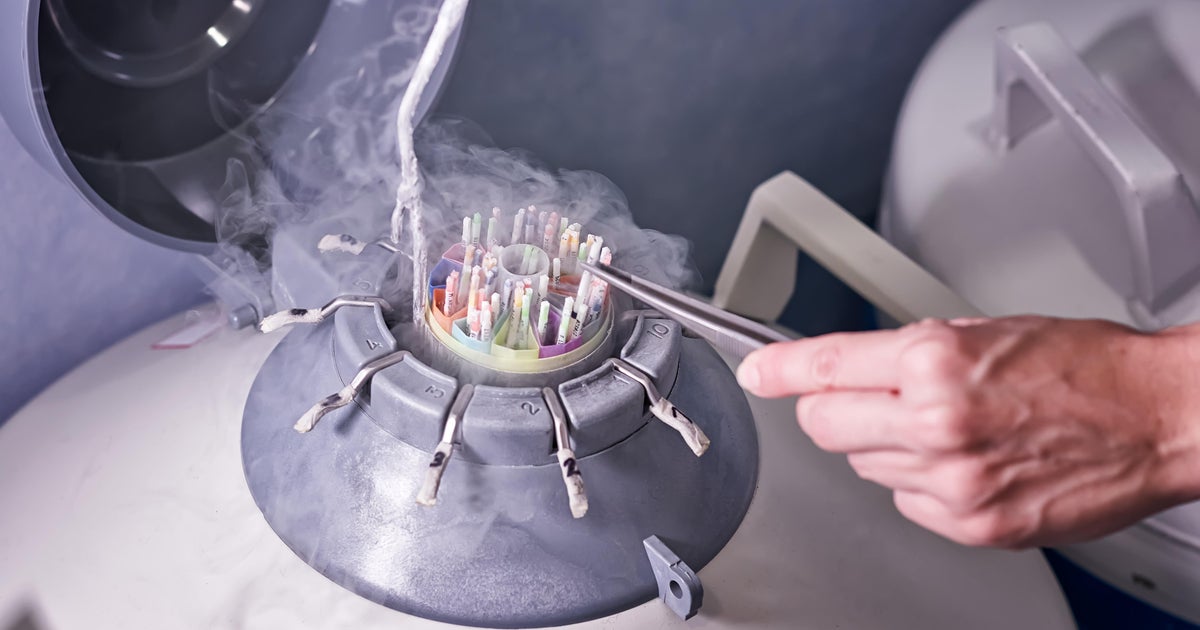
Louise Mcloughlin found out when she was 13 that she had been conceived by a sperm donor. She said when her parents told her, it “felt like the rug was just pulled from underneath my entire life.”
McLoughlin was raised in Dublin as an only child. When at-home genetic testing became available in 2006, she signed up, and she discovered that she had a half-sister. Not long after that, there was another match.
“I just went, oh my God. We found our biological dad,” she told CBS News. Within a few hours McLoughlin found a website belonging to her biological father and, later that same day, she called him.
Courtesy of Louise McLoughlin
“I know I’ve caught you off guard,” McLoughlin told the man on the other end of the phone line. “I have a million questions. You may have a million questions.”
Her biological father said the call came unexpectedly, but he did acknowledge donating sperm at a clinic in London years earlier. He said he thought the donation would remain anonymous, but he told McLoughlin that he welcomed her call.
“To hear this man say, ‘you’re very welcome,'” McLoughlin told CBS News, “I feel guilty, because I know that’s not the happy ending that everyone gets.”
McLoughlin now hosts a podcast called You Look Like Me, which explores the lives of donor-conceived people. Some have faced the discovery of hundreds of half-siblings.
CBS News
A recent Netflix documentary highlighted the case of one prolific sperm donor from the Netherlands, Jonathan Jacob Meijer, who has fathered hundreds of children. Some of his donations may have reached the United States.
Meijer told CBS News he believes he has about 550 children, but admitted it could be many more. The sperm banks he’s used do not need to inform him how many children have resulted from his donations.
In 2023, a court in the Netherlands banned a man, identified only as Jonathan M. under Dutch privacy laws, from donating any more sperm, saying he had fathered about 550 children. The court noted that under national guidelines, donors are allowed to produce a maximum of 25 children with 12 mothers, and the judge said the man had “deliberately lied about” the extent of his donations “to persuade the parents to take him as a donor.”
“Donor conceived people have been sounding the alarm on this for years,” McLoughlin said. “We are seeing men who are donating hundreds and thousands of times. They’re doing it in small areas. They’re doing it within the same kind of years. So you’re ending up with kids who are growing up knowing each other or meeting each other in later adulthood, which is just incredibly, incredibly dangerous.”
One of the dangers is that donor offspring can end up in incestuous relationships without knowing.
One Connecticut woman revealed last year that she unknowingly had a relationship with her half-brother in high school, saying her mother was a victim of fertility fraud having been inseminated by her doctor with his own sperm. More than 50 fertility doctors in the U.S. have been accused of using their own sperm to inseminate patients.
“We regulate gasoline more comprehensively, driving more comprehensively. And yet, here we’re actually creating lives,” Indiana Law Professor Jody Madeira said. She’s trying to get a law passed in Indiana that would make fertility fraud a felony.
Madeira said the U.S. was like the Wild West compared to European countries in terms of regulating sperm donations.
“If you think that something like, a guy with a thousand kids, donor conceived kids, is possible in Europe, then the chances are exponentially higher in the United States,” she told CBS News.
There are several known prolific sperm donors in America, including New Yorker Ari Nagal, who’s said he has 165 kids, and is still counting.
There are no national databases tracking sperm donations in America, nor is there a legal limit on how many donations a person can make. There is also no requirement for donors to disclose genetic medical conditions that could affect offspring.
Madeira said it is possible to regulate sperm donations, but “in the United States, our cultural orientation just prioritizes the market, and the industry, and the wishes of parents. Whereas in Europe, they prioritize the rights of donor conceived individuals.”
Louise McLoughlin said says the industry could improve, and she said if donor-conceived people cshould be part of the process.
“We are not babies. We have been able to contribute to this conversation for a really long time, and we actually haven’t been allowed a space… This journey of conception, this journey of fertility treatment, it does not end when you have a baby. It does not end when you conceive. It ends, you know, all the way in the future when your child is grown up into a person, and they — these are real world issues that they have to deal with.”
CBS News
Stowaway caught after getting aboard Delta flight from New York City to Paris
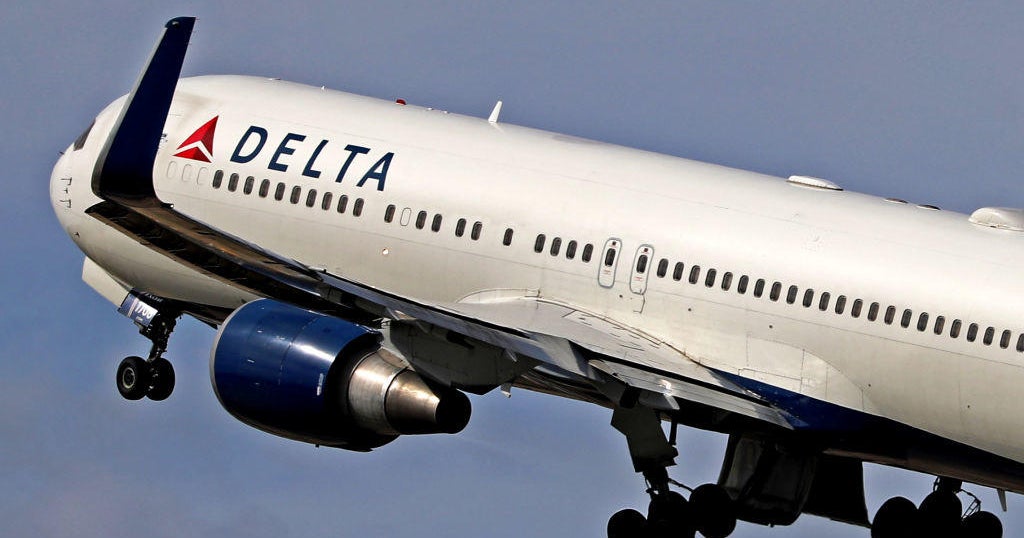
A stowaway somehow made it onto a Delta Air Lines flight Tuesday from New York City to Paris without a boarding pass, officials confirmed.
The woman boarded Delta Flight No. 264 from John F. Kennedy International Airport to Paris Charles de Gaulle Airport, CBS News learned. She was discovered while the plane was in midair and was taken into custody in Paris.
In a social media video posted by a passenger, the captain can be heard over the plane’s intercom — after the plane landed in Paris — telling flyers that “we’re just waiting for the police to come on board, they may be here now, and they’ve directed us to keep everyone on the airplane until we sort out the extra passenger that’s on the plane.”
The circumstances of how she was found were unclear, and her name was not immediately released.
A Transportation Security Administration source told CBS News that the woman went through an advanced imaging technology body scanner at a checkpoint in JFK Airport after somehow bypassing the document and ID check portion of the TSA process.
In a statement provided to CBS News, a TSA spokesperson said that it could “confirm that an individual without a boarding pass completed the airport security screening without any prohibited items. The individual bypassed two identity verification and boarding status stations and was able to board the aircraft.”
In order to be present at an airline departure gate for boarding, an individual must have cleared a TSA security checkpoint.
After getting through TSA security, it’s unclear how exactly the woman boarded the Boeing 767-400ER without showing a boarding pass or passport to Delta staff.
“Nothing is of greater importance than matters of safety and security,” Delta said in a statement. “That’s why Delta is conducting an exhaustive investigation of what may have occurred and will work collaboratively with other aviation stakeholders and law enforcement to that end.”
French law enforcement and the TSA are separately investigating. The woman could be subject to a civil penalty or fine for bypassing the document check process.
There is new technology known as e-gates that are being rolled out at airports which involves using biometrics to check travel documents as part of the international departure boarding process. Such technology would have caught the stowaway.
CBS News
What do we know about the violent threats against Trump’s administration picks

Watch CBS News
Be the first to know
Get browser notifications for breaking news, live events, and exclusive reporting.
CBS News
New Orleans community hoping to find escaped rescue dog before Thanksgiving

Watch CBS News
Be the first to know
Get browser notifications for breaking news, live events, and exclusive reporting.


